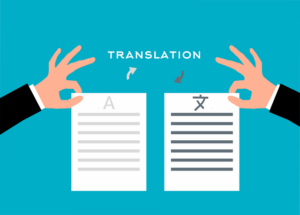Personal Statements: Embrace Diversity, Convey Your Unique Voice
In today's globalized world, incorporating multilingual elements in Personal Statements (PS) and Statements of Purpose (SOP) enhances applications. Bilingual or multilingual content demonstrates linguistic flexibility, cultural adaptability, and…….
In today's globalized world, incorporating multilingual elements in Personal Statements (PS) and Statements of Purpose (SOP) enhances applications. Bilingual or multilingual content demonstrates linguistic flexibility, cultural adaptability, and a unique perspective, appealing to institutions valuing diversity. Authentically expressing cultural heritage through personal narratives enriches PS/SOPs, making them stand out. Professional assistance is crucial for accurate language use, translation, and meeting institutional requirements. Clear, concise communication in these statements showcases identity, aspirations, and fit for diverse opportunities. Language proficiency, especially in multiple languages, opens doors globally by fostering connections and contributing to multicultural environments.
Submitting personal statements or statements of purpose in any language can be a powerful way to express your unique story and enhance your application. In today’s globalized world, language flexibility is key. This article explores various aspects of writing personal statements, from cultural expression and multilingual essays’ impact to authenticity, professional guidance, and breaking barriers. Discover how mastering different languages opens doors to diverse opportunities, allowing you to bridge cultural gaps and showcase your true potential in academic and professional pursuits.
- Language Flexibility: Embrace Diversity in Personal Statements
- Cultural Expression: Weaving Your Story into Your Application
- Global Reach: Why Multilingual Essays Matter
- Authenticity Matters: Conveying Your Voice Across Languages
- Professional Guidance: Navigating Language-Specific Requirements
- Translating Your Dreams: Effective Communication in Personal Statements
- Linguistic Skills: Unlocking Opportunities Through Language
- Cultural Bridging: Personal Statements as Global Introductions
- Breaking Barriers: The Power of Bilingual Applications
- Personal Growth: A Journey of Words Across Languages
Language Flexibility: Embrace Diversity in Personal Statements
In today’s globalized world, language flexibility is a valuable skill that shines brightly in personal statements or statements of purpose (SOPs). When crafting these essential documents for applications, embracing diversity in your linguistic abilities can significantly enhance your profile. Many institutions and programs value multilingual candidates as they bring unique perspectives and cultural insights.
Personal statements allow you to showcase not only your academic achievements but also your ability to navigate different languages. Whether it’s a bilingual SOP for an international program or including a brief paragraph in your native language, this flexibility demonstrates your comfort and proficiency. It opens doors to connecting with diverse peers and faculty members who share similar linguistic backgrounds, fostering a vibrant and inclusive academic environment.
Cultural Expression: Weaving Your Story into Your Application
Cultural expression is a vibrant thread that weaves its way through the tapestry of your personal statements or statements of purpose. Sharing your unique story, steeped in your cultural heritage and experiences, adds depth and authenticity to your application. It allows admissions officers to catch glimpses of your world, fostering a more comprehensive understanding of who you are beyond academic achievements and test scores.
When interweaving cultural expression into your personal statement, focus on specific incidents or themes that highlight your identity. Perhaps it’s a traditional practice that holds special meaning, a language learned through family conversations, or experiences navigating different cultures. These details not only showcase your background but also demonstrate your adaptability, empathy, and rich inner life – qualities that can greatly enhance your application.
Global Reach: Why Multilingual Essays Matter
In today’s globalized world, submitting personal statements or statements of purpose in multiple languages can significantly enhance your application. This is especially true for international students and scholars who wish to study or work abroad. Multilingual essays allow you to connect with a diverse audience, demonstrating not only your proficiency in different languages but also your cultural sensitivity and adaptability. It showcases your ability to navigate different environments and communicate effectively across borders, which are highly valued skills in many fields.
Furthermore, providing statements in various languages can offer a deeper insight into your personal experiences and perspectives. For instance, discussing an event or reflection in your native tongue might evoke emotions and nuances that might be lost in translation. This authenticity adds richness to your narrative, making your personal statement stand out. It’s a powerful way to engage reviewers and share your unique story on a global scale.
Authenticity Matters: Conveying Your Voice Across Languages
In the realm of Personal Statements and Statements of Purpose, authenticity is a gem often overlooked but immensely valuable. When crafting your application essay, remember that conveying your unique voice and perspective across languages is not merely about translation—it’s about transcending barriers to connect with readers on a personal level.
Each language carries its own rhythm, nuances, and cultural shades, which can significantly impact the message you intend to deliver. While it might be tempting to adapt your writing style for different languages, staying true to your voice ensures that your passion, experiences, and motivations shine through. Authentic expressions create a powerful connection with admission officers or scholarship selectors, allowing them to understand you as an individual beyond grades and test scores.
Professional Guidance: Navigating Language-Specific Requirements
Submitting personal statements or statements of purpose in any language requires professional guidance, especially when navigating language-specific requirements. Each institution has its own set of guidelines and expectations for international applicants, who often need to provide translated versions of their documents along with certified copies. It’s crucial to seek advice from experts who understand both the academic and linguistic nuances of these documents.
Professional guidance can help ensure that your personal statement effectively conveys your experiences, goals, and motivations while adhering to the specific language requirements. This includes choosing the right language for your primary document, accurately translating it, and sometimes even adapting its style to resonate with a diverse, global audience. Such guidance enables you to present yourself in the best possible light, increasing your chances of standing out among a sea of applicants.
Translating Your Dreams: Effective Communication in Personal Statements
Translating your dreams into compelling personal statements or statements of purpose is an art that requires clear and effective communication. These written pieces are your chance to showcase who you are, your aspirations, and why you’re a suitable candidate for the program or opportunity you’re applying for. When crafting these statements, remember that they should be a reflection of your unique journey and voice.
Use language that resonates with your audience; whether it’s an admissions committee or a potential employer, tailor your words to engage them. Avoid jargon or overly complex sentences that might obscure your message. Instead, opt for simplicity and clarity. Express your ideas coherently, ensuring each paragraph builds upon the previous one to create a narrative that captivates readers. Remember, your personal statements are a window into your world; let them paint a vivid picture of your aspirations, experiences, and the value you’ll bring to their community.
Linguistic Skills: Unlocking Opportunities Through Language
Language is a powerful tool that opens doors to countless opportunities, especially when it comes to personal statements and statements of purpose. For students and professionals alike, demonstrating proficiency in multiple languages can significantly enhance their academic and career prospects. In today’s globalized world, institutions and employers value linguistic diversity, recognizing its potential to foster cross-cultural understanding and collaboration.
When crafting a personal statement or statement of purpose, leveraging language skills allows individuals to express themselves more effectively. It enables them to convey unique perspectives, cultural insights, and a deeper level of engagement with the subject matter. Whether it’s writing in your native tongue or communicating in a second language, this skill set showcases adaptability, cognitive flexibility, and a broad worldview. As you navigate academic applications or job interviews, remember that linguistic prowess is an asset that can set your personal statements apart from the rest.
Cultural Bridging: Personal Statements as Global Introductions
Personal statements and statements of purpose serve as powerful tools for cultural bridging in a globalized world. When submitted in any language, they become a student’s introduction to diverse audiences, including academic institutions, scholarship committees, and future employers. These written pieces transcend geographical boundaries by offering insights into personal backgrounds, experiences, and aspirations, fostering understanding and connection across cultures.
In today’s digital era, where interactions are increasingly global, the ability to articulate one’s unique story in a different language showcases adaptability and cultural sensitivity. It allows individuals to share their perspectives, challenge stereotypes, and contribute to a rich multicultural environment. Whether it’s an academic or professional pursuit, personal statements enable writers to navigate complex narratives, highlighting their potential to bridge cultural gaps and foster inclusivity.
Breaking Barriers: The Power of Bilingual Applications
In today’s globalized world, submitting personal statements or statements of purpose in multiple languages can be a powerful tool for breaking barriers and expanding opportunities. For many individuals, especially those from diverse cultural backgrounds, bilingualism offers not just a linguistic advantage but also a unique perspective that enriches their academic and professional journeys. When crafting these essential documents, the ability to switch between languages allows applicants to convey their stories, aspirations, and experiences in a more authentic and nuanced way.
This approach is particularly beneficial for international students or those applying to institutions with diverse student bodies. By submitting in their native language alongside English (or another common academic language), they can showcase their linguistic fluency and cultural competence. It enables admissions officers to gain deeper insights into the applicant’s identity, background, and potential contributions to the university community. Breaking linguistic barriers opens doors to a more inclusive and multifaceted evaluation process for personal statements or statements of purpose.
Personal Growth: A Journey of Words Across Languages
Submitting personal statements or statements of purpose in any language is a powerful way to showcase your unique journey and growth, transcending mere words on a page. This process allows individuals to express themselves authentically, weaving a narrative that bridges cultural divides. By sharing their experiences and aspirations, applicants can demonstrate how their backgrounds have shaped their perspectives and goals, making their applications stand out.
Language itself becomes a tool for personal growth, enabling individuals to articulate complex ideas and emotions. Whether it’s the poetic flow of their native tongue or the precision of a second language, each statement becomes a testament to the applicant’s ability to navigate different linguistic landscapes. This journey of words across languages is not merely an academic exercise but a reflection of their evolving selves, showcasing resilience, adaptability, and a deep understanding of diverse cultural contexts.
Submitting your personal statements or statements of purpose in any language opens doors to a diverse range of opportunities. By embracing language flexibility, incorporating cultural expression, and leveraging multilingual essays, you can effectively communicate your dreams and unlock global prospects. Remember, authenticity and professional guidance are key to crafting powerful personal statements that bridge cultural gaps and showcase your unique journey.



